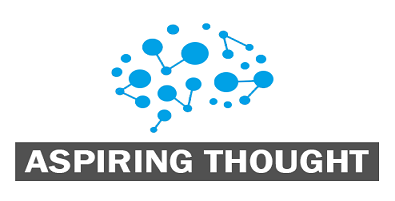Signing up for an early childhood education course may sound like a soft entry into the world of teaching, but anyone who has ever tried to wrangle a room of toddlers knows it’s anything but. Learning about early childhood education course content reveals how intricate, sensitive, and scientifically grounded this field is. It’s not just about reading picture books and teaching the alphabet—it’s about understanding child psychology, managing behaviour with care, and building strong educational foundations that shape lives for years to come.
Preparation isn’t just useful; it’s essential. If you’re heading into this field thinking enthusiasm alone will carry you through, prepare for a surprise or two—some delightful, others less so.
Know What You’re Signing Up For
Before you dive into modules and lesson planning, take a moment to understand what early childhood education entails. At its heart, this discipline focuses on children from birth to age eight, and no two days in this age bracket are alike. You’ll cover a surprising range of topics—developmental milestones, early literacy, numeracy, health, safety, and classroom dynamics. You may also be introduced to theories by Piaget, Vygotsky, and Bronfenbrenner faster than you can say “cognitive development.”
It helps to read beyond the course brochure. Look up credible journals, blogs written by early childhood practitioners, or even YouTube lectures if you prefer visual cues. Understanding the scope of an early childhood education course before your first class will save you from feeling blindsided when discussions turn suddenly philosophical or when assignments ask you to critique educational frameworks you’ve never heard of.
Most importantly, remind yourself why this field matters. Children don’t just absorb information—they absorb you. Your energy, tone, and responses help shape their understanding of the world. If that feels like a big responsibility, that’s because it is.
Develop Your Emotional Toolkit
No amount of academic preparation will matter if you’re emotionally unequipped for the job. Young children are delightful, yes, but they are also unpredictable, brutally honest, and sometimes walking petri dishes. You’ll be working with tears, tantrums, and toilet accidents, all before lunchtime. Emotional resilience is non-negotiable.
Learning about early childhood education courses doesn’t mean toughening up and shutting down. It means being patient without becoming passive, firm without being harsh, and responsive without taking things personally. Think of it as emotional agility—being able to adapt in real time while keeping your stress in check. Practising mindfulness, setting clear boundaries, and reflecting on your reactions will all help in the long run.
It’s worth developing habits that support this side of your preparation: journalling, stress management techniques, or even weekly self-assessments. Professional education programmes make well-grounded teachers that influence not just classroom harmony, but also the way children learn to regulate their emotions.
Sharpen Your Practical Skills
The theory is crucial, but this is a profession grounded in practice. You’ll be expected to observe, plan, and implement activities that support developmental goals. This isn’t improvisational theatre—it takes foresight and structure. Preparing for this means brushing up on skills like lesson planning, observation techniques, and child-safe classroom management.
If you have little or no experience in a childcare setting, try to volunteer or shadow someone before your course begins. Watch how seasoned educators guide transitions between activities, manage group dynamics, and create routines that provide structure while leaving space for creativity.
Also, don’t neglect the logistics: learn how to set up learning stations, understand safety protocols, and familiarise yourself with documentation standards. It’s not glamorous work, but it’s essential to the smooth running of any early learning environment. Being practically prepared sets you apart when it comes time for teaching placements or practicum experiences.
Starting a course in early childhood education is not just about earning a qualification—it’s about stepping into a role that will influence young minds during their formative years. You’ll need to balance theory with practice, intellect with empathy, and structure with spontaneity. It’s rewarding, yes, but only if you’ve truly prepared for what lies ahead.
Don’t let the smiling faces in the promotional material fool you—this course demands your full attention, and rightly so. If you’re ready to learn, adapt, and grow into a skilled early childhood educator, then it’s time to take that next step with confidence.
Ready to begin your journey into the world of early childhood education? Contact Asian International College today and prepare for a course that equips you with skills, insight, and purpose.




